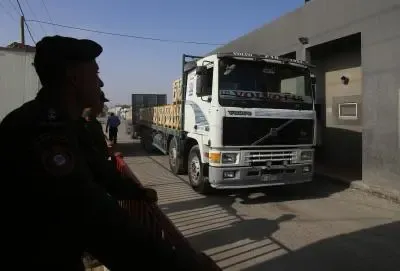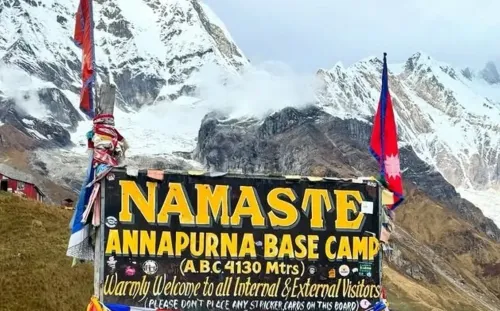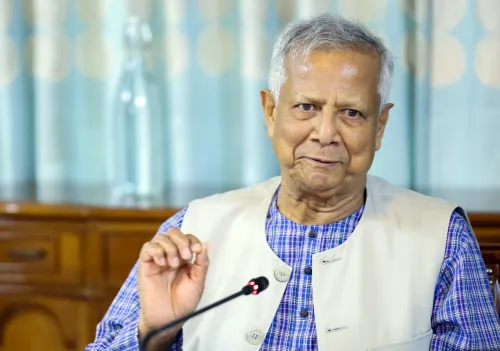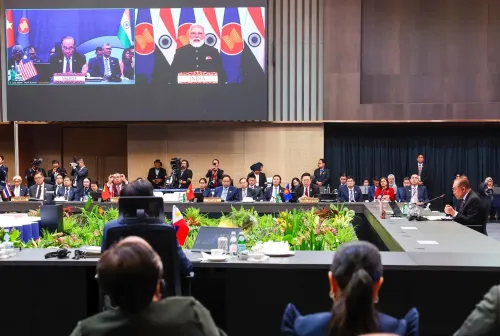Is the Fuel Provided to Gaza by the UN Enough?

Synopsis
Key Takeaways
- The fuel crisis in Gaza is critical and ongoing.
- Recent fuel allowances are inadequate for essential operations.
- Many services are at risk of shutting down.
- Urgent action is needed to alleviate the humanitarian situation.
- Independent investigations into fatalities are essential.
United Nations, July 12 (NationPress) The fuel crisis in Gaza is still dire despite the fact that Israeli authorities permitted 75,000 liters of fuel to enter for two consecutive days, according to reports from UN humanitarian officials.
According to the UN Office for the Coordination of Humanitarian Affairs (OCHA), hundreds of thousands of liters of fuel are necessary each day to support relief and infrastructure efforts. The fuel blockade has now persisted for over four months.
While describing the second day’s fuel allowance as a positive step, OCHA pointed out that it represents only a fraction of what is needed to maintain critical life-saving services, as reported by Xinhua News Agency.
“To be very clear: fuel is running out in Gaza,” stated the office. “If the current restrictions are not lifted immediately to allow for larger quantities to be brought in regularly, more essential services will cease to operate.”
OCHA emphasized the urgent requirement for unhindered and safe access within Gaza.
UN teams have managed to supply some fuel to hospitals in the southern regions, as Israeli authorities have prohibited their efforts to deliver fuel to the northern areas.
“OCHA warns that such refusals are life-threatening, with hospitals in the north on the brink of closure,” the office stated. “Fuel supplies are also dwindling for ambulances, water treatment plants, and numerous other vital services, all of which are in jeopardy of failing.”
The fuel deficit is just one of the numerous obstacles that residents in the Gaza Strip are grappling with. OCHA indicated that each day without a ceasefire leads to more unnecessary fatalities in Gaza, with children succumbing to hunger and individuals being shot while attempting to access the limited aid permitted through the Israeli barrier.
Out of 15 attempts to coordinate movements with Israeli authorities on Thursday, only six were fully approved, while five were outright denied, and four were initially accepted but faced challenges on the ground, according to the office. Essential missions such as evacuating vulnerable individuals from high-risk zones, retrieving vehicles and spare parts, and assessing medical equipment could not be executed.
Furthermore, the facilitation of movements must be timely.
OCHA reported that Israeli authorities rejected a request on Wednesday to access a section of Gaza City where 18 injured individuals were trapped under debris. By the time the mission was finally permitted through on Thursday, no survivors were found.
The distribution of tents cannot even be initiated as stocks are completely depleted, and Israeli authorities have obstructed the entry of any shelter materials for over 130 days.
Ongoing hostilities and insecurity continue to endanger civilians, including aid workers.
OCHA noted that on Wednesday and Thursday, five airstrikes occurred just a few hundred meters from aid workers, including UN personnel. Fortunately, no aid workers sustained injuries. Additionally, members of the Red Cross and Red Crescent societies were shot at and injured while attempting to assist a colleague who had been wounded and unreachable since the previous Friday. In all instances, their movements had been coordinated with the Israeli authorities.
Stephane Dujarric, chief spokesperson for UN Secretary-General Antonio Guterres, provided updated information released earlier Friday by the UN Human Rights Office.
“They report that 819 Palestinians have been killed while trying to obtain food in Gaza,” Dujarric stated. “Of these, 634 lost their lives near the Gaza Humanitarian Foundation (GHF) distribution points, while 185 died close to humanitarian aid convoys, including some operated by us.”
This data was collected between May 27, when the GHF operation commenced, and July 10.
“The figures are based on information gathered by our human rights colleagues from various credible sources, including medical, human rights, and humanitarian organizations,” Dujarric mentioned. “All these numbers emphasize the necessity for independent investigations into why individuals are being killed while merely seeking access to aid.”
The new US-run, Israeli-supported GHF operations significantly differ from the established protocols of the UN and its humanitarian partners.
Israel claims that the UN aid distribution framework was compromised due to members of Hamas commandeering food shipments for their own use.
OCHA indicated that the GHF has established four aid distribution centers in or near military zones for all of Gaza, which are marked by barbed-wire-fenced approach lanes for civilians. In contrast, the traditional UN-led international aid system typically delivers relief to hundreds of communities.
The rush of starving Gazans following announcements of aid availability at the four GHF centers, often after walking miles to reach a hub, seemingly provoked gunfire from anxious GHF security forces.
Traditional international aid organizations do not collaborate with the GHF.
Dujarric has consistently informed reporters that the world body is not opposed to the GHF; it merely continues to uphold the standards of humanity, impartiality, neutrality, and independence set by international humanitarian aid organizations.
“A food distribution system where individuals are routinely killed while attempting to secure food cannot be classified as a humanitarian operation,” remarked the spokesperson.









